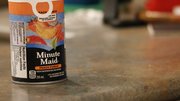Coffee Service
NCA Data Trends Study: Pandemic softened specialty coffee consumption

May 20, 2021
Specialty coffee, which has been a driver of coffee consumption in recent years, took a hit during the coronavirus pandemic, according to the National Coffee Association's 2021 National Coffee Data Trends study. The survey was conducted in January among both males and females, 13 years of age or older, who consumed a beverage other than tap water the day prior to being interviewed.
In August, NCA fielded a smaller, second wave of coffee and beverage tracking to update and compare coffee consumption behavior and attitudes in the era of COVID-19. During this time, the economy had re-opened partially — access to sit-down dining in restaurants and cafes varied by region.
Past-day penetration of specialty coffee has softened from 39% in January 2020 to 36% in January 2021.
Looking back even further to pre-pandemic levels, specialty coffee penetration within the past-day was at 41% in 2017-2018.
The main contributor to this downward trend has been the "traditional coffee — specialty" segment, which has seen a reduction of 4% versus last year. Espresso-based and non-espresso based beverages are largely stable during COVID-19, which speaks to the resilience of these beverages.
After experiencing a dip in September 2020, past-day penetration of espresso-based beverages recovered 2%, back up to 22%. This is comparable to pre-pandemic levels. Recovery can be attributed by sustained levels of sub-types such as cappuccinos (6%), lattes (6%) and espressos (5%) which are comparable to the levels seen one year ago.
Specialty coffee is defined as any espresso-based beverage (lattes, cappuccinos etc.), non-espresso based beverage (frozen blend, cold brew, nitro) and traditional coffee that consumers perceive to be brewed from premium coffee beans/grounds.
Hispanic-Americans and Asian-Americans are the strongest consumers of specialty. Attitudinal perceptions and behaviors show specialty coffee drinkers are generally more engaged with coffee.
For an update on how the coronavirus pandemic has affected convenience services, click here.
 ChatGPT
ChatGPT Grok
Grok Perplexity
Perplexity Claude
Claude






